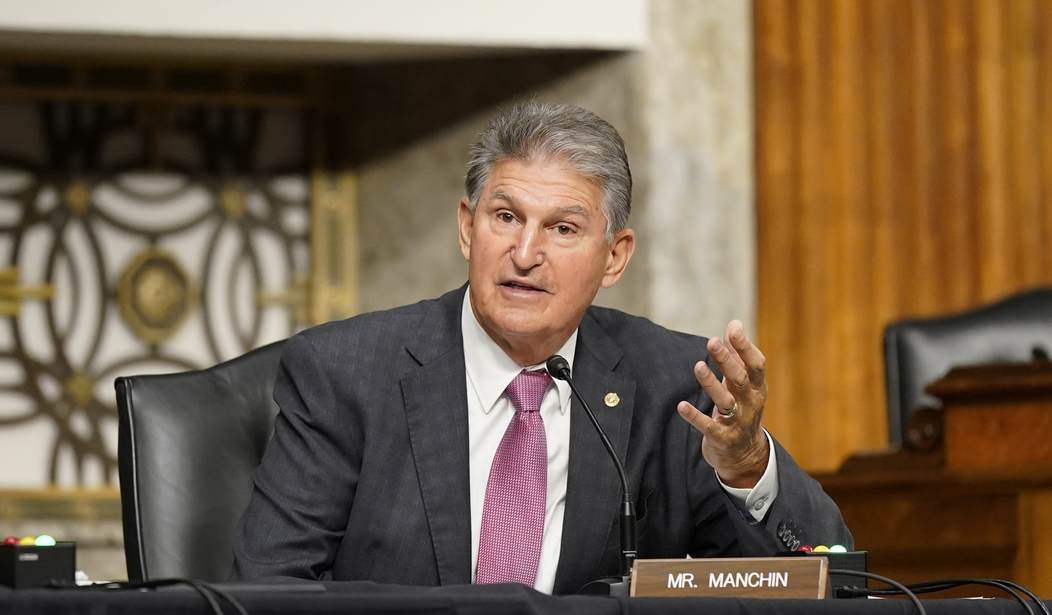According to Capitol Hill sources, President Joe Biden and Senator Joe Manchin are still miles apart on seeing eye to eye on how big Biden’s Build Back Better bill should be.
The deadline that Biden set for passage — Christmas Day — will almost certainly come and go, leaving Democrats with the unpalatable option of passing a multi-trillion-dollar social-spending bill in an election year.
But there’s no guarantee Manchin will ever get to “yes.” Manchin is concerned that the president is playing a game of bait-and-switch with Congress and American taxpayers and that dishonesty could lead to even more ruinous inflation.
Biden is playing hide-and-seek with the true cost of the government spending programs he wants included in the BBB. One example is the Child Tax Credit (CTC). The bill as it is currently written would authorize the program — a pandemic relief measure that was never supposed to become permanent — for 2022 at a price of $185 billion. But since it’s highly unlikely that, once authorized, the CTC would ever be eliminated, Manchin wants the true cost of the program over 10 years to be included in the BBB.
Both parties play games with the budget like this. The reason the CTC is authorized for only a year is that it’s a budgetary gimmick to keep the true cost of the program out of the bill. If the CTC were extended for 10 years, it would end up costing $1.6 trillion, not $185 billion.
There are several sleights of hand like that in the BBB that Manchin wants to see end. And the way to do that is to standardize the timeline of the programs that are authorized. Manchin wants to see a 10-year sunset provision for all the spending programs but Biden wants some programs to be authorized only for a year or two, others for ten.
Driving the news: Ahead of a phone call with Biden on Monday afternoon, Manchin publicly laid down some of his markers for how big the bill can get — and how to calculate its true costs.
“Whatever Congress is considering, we should do it within the limits of what we can afford,” he told CNN’s Manu Raju.
“Whatever plan it would be, pre-K, child care and home care, then it should be [over] 10 years, it shouldn’t just be one year here, three years here, five years here.”
He called the latest CBO analysis, which calculated a $3 trillion BBB budget deficit, very “sobering.”
A spokesperson for Manchin called his conversation with the president “productive,” and said they “will continue to talk over the coming days.” A White House spokesman called it a “good, constructive phone call.”
At this point, Biden is holding out for a bigger deal rather than a quicker deal. And that takes negotiations on the bill into 2022. It begs the question: how long will nervous red-state Democrats hang with the president on his signature social-spending bill?
Biden’s problem is that he has absolutely no margin for error. Since not a single Republican has stepped forward to support the BBB, Biden’s slim majority in the House and no majority in the Senate is all he has to work with to pass the bill.
And Biden has a very restless radical wing of the party to deal with as well. He can’t appear to give Manchin too much or the radicals will bolt. As the president’s popularity sinks, Democrats feel less and less obliged to support him.
There isn’t a drop-dead date for the passage of the BBB, but you might want to keep an eye on January 12—when the next inflation numbers will be published. If they’re bad—and they’re expected to be awful—skittish red-state Democrats may leave Biden high and dry and his Build Back Better bill on the scrap heap of history.










